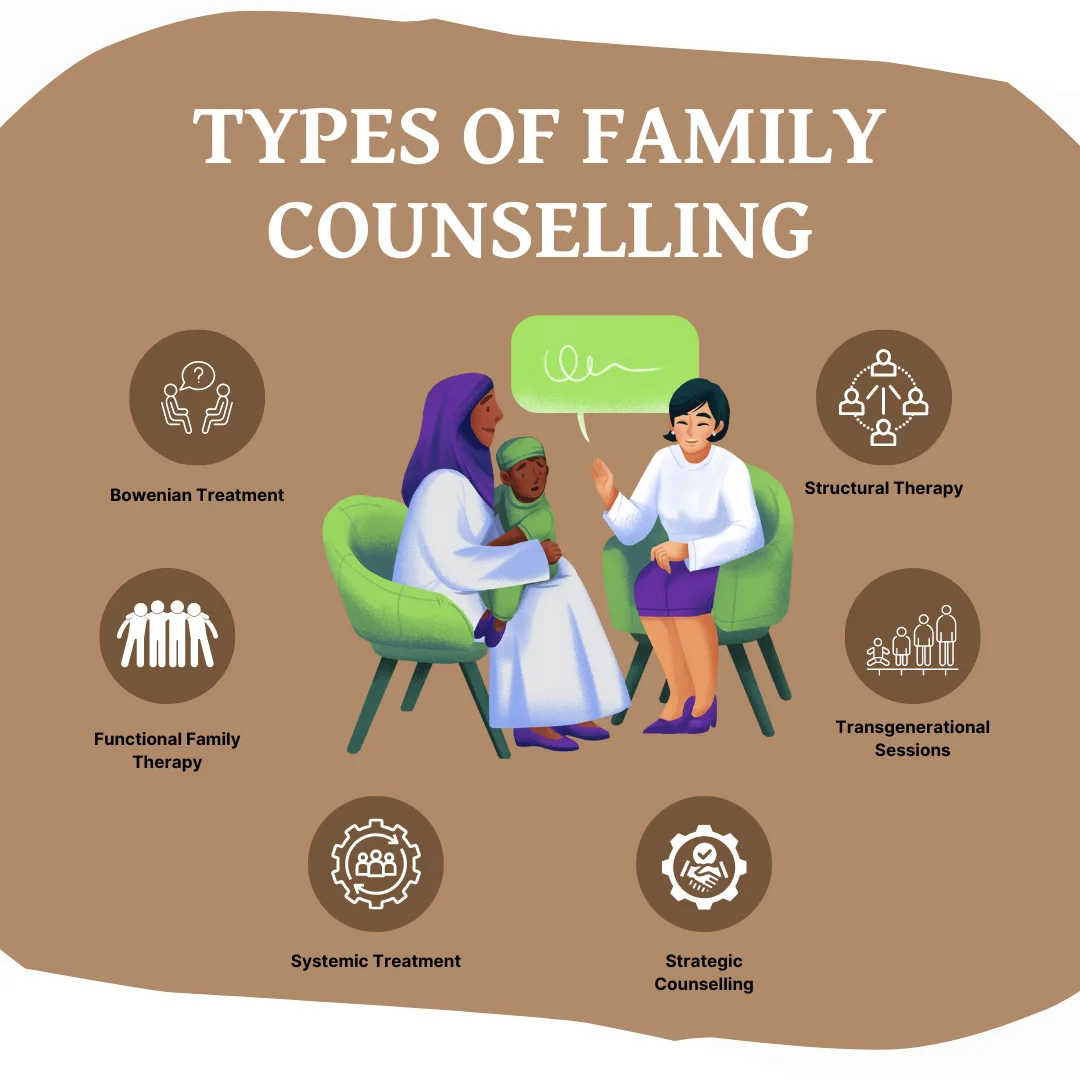A Comprehensive Guide to the Different Types of Therapy and Their Effect
Therapy incorporates a selection of healing strategies, each designed to meet unique mental wellness needs. From the organized techniques of Cognitive-Behavioral Therapy to the empathetic nature of Person-Centered Therapy, these modalities offer distinctive pathways to personal growth. Family therapy and Dialectical Behavior modification supply added structures for recovery, while team therapy cultivates area support. Comprehending these varied techniques can brighten their extensive effect on individual well-being. What continues to be to be checked out are the details of each approach.

Recognizing Cognitive-Behavioral Therapy (CBT)
Although many restorative methods exist, Cognitive-Behavioral Therapy (CBT) attracts attention as a result of its structured, goal-oriented nature. This form of therapy is based on the facility that thoughts, sensations, and actions are interconnected, and by transforming adverse idea patterns, individuals can alter their emotional actions and activities. CBT utilizes various methods, such as cognitive restructuring, which assists clients determine and challenge distorted beliefs. Behavioral activation encourages involvement in pleasant activities to combat anxiety.
Typically, CBT is a short-term treatment, typically long-term in between 12 to 20 sessions, making it accessible for those seeking quick results. Its efficiency has been well-documented in dealing with stress and anxiety conditions, anxiety, and other mental wellness problems. The therapist's role is to guide customers with workouts and research tasks, cultivating self-awareness and promoting long-lasting coping techniques. This useful strategy equips individuals to take control of their psychological wellness, eventually leading to boosted life contentment.
Checking Out Person-Centered Therapy
Person-Centered Therapy, created by Carl Rogers, uses a contrasting approach to Cognitive-Behavioral Therapy by emphasizing the customer's subjective experience. This restorative model focuses on the individual's viewpoint, promoting an environment of compassion, unconditional favorable regard, and credibility. By enabling customers to explore their sensations and thoughts without judgment, specialists help with individual growth and self-discovery.
The core tenet of Person-Centered Treatment is the idea that individuals possess the inherent capability for self-healing and individual advancement. In this setup, the therapist works as a helpful overview rather than an instruction authority, motivating customers to take fee of their very own journey. This strategy is particularly efficient for those coming to grips with concerns such as low self-worth, anxiety, or clinical depression, as it encourages them to face and understand their feelings. Ultimately, Person-Centered Treatment grows a strong healing partnership, cultivating depend on and openness essential for purposeful modification.
The Duty of Family Treatment in Healing
Household treatment acts as a vital element in the recovery process for individuals and their partnerships. This healing technique focuses on improving interaction, solving disputes, and cultivating deeper links among relative. By dealing with inefficient characteristics, family members therapy motivates each member to reveal their thoughts and feelings in a risk-free atmosphere, promoting understanding and empathy.

The impact of family members treatment expands beyond the sessions, as enhanced partnerships can lead to improved psychological wellness for all included. On the whole, family treatment plays an important function in recovery by cultivating unity, strength, and common assistance amongst relative, ultimately directing them toward a healthier, much more satisfying life with each other.
Unpacking Dialectical Behavior Modification (DBT)
Building on the foundation of restorative methods that improve emotional wellness, Dialectical Behavior modification (DBT) provides a structured framework for individuals struggling with intense feelings and behavior obstacles. Created by Marsha Linehan, DBT incorporates cognitive-behavioral methods with mindfulness methods, intending to aid customers handle overwhelming feelings and improve social performance.
The treatment is read more especially helpful for those detected with Borderline Character Disorder however is additionally suitable to a variety of various other psychological health issues. virtual therapy. DBT includes specific therapy sessions and abilities training groups, focusing on four vital ability: mindfulness, distress resistance, emotion regulation, and social efficiency
The Benefits of Team Therapy Sessions
While private therapy official statement provides valuable understandings, team counseling sessions provide distinct benefits that can greatly enhance the healing experience. One important advantage is the feeling of neighborhood that emerges among individuals. People commonly discover comfort in sharing their experiences with others encountering comparable difficulties, fostering an encouraging environment that minimizes sensations of isolation.
Team sessions motivate diverse perspectives, allowing individuals to find out from each other's coping methods and understandings. This collective knowledge can bring about enhanced analytical capabilities and a broader understanding of individual issues.
In addition, group therapy commonly promotes liability, as members inspire one another to seek their objectives and follow their dedications. Lastly, the cost-effectiveness of team therapy makes it an available alternative for many people looking for support. On the whole, the joint nature of group counseling sessions can considerably enhance the restorative trip.
Frequently Asked Questions
What Qualifications Do Therapists Need to Practice Therapy?
Specialists typically require an appropriate degree in psychology or counseling, along with supervised clinical experience. Furthermore, they need to acquire proper licensure or accreditation to practice legally, ensuring adherence to professional criteria and moral standards.
Exactly how Do I Choose the Right Kind of Treatment for Me?
Choosing the appropriate sort of therapy involves reviewing individual requirements, exploring numerous approaches, thinking about therapist specialties, and seeking recommendations. Comprehending specific objectives and preferences can greatly enhance the performance and contentment of the restorative experience.

Are Online Counseling Sessions as Effective as In-Person Ones?
The efficiency of on-line counseling sessions compared to in-person ones commonly relies on individual preferences and scenarios. Study shows that both methods can yield positive results, though some may discover her response better convenience in face-to-face communications.
How Long Does Counseling Usually Last?

What Should I Anticipate Throughout My First Therapy Session?
Throughout the very first counseling session, customers can expect an intro, conversation of their issues, facility of objectives, and a summary of the counseling procedure - virtual therapy. This preliminary meeting intends to build connection and warranty comfort